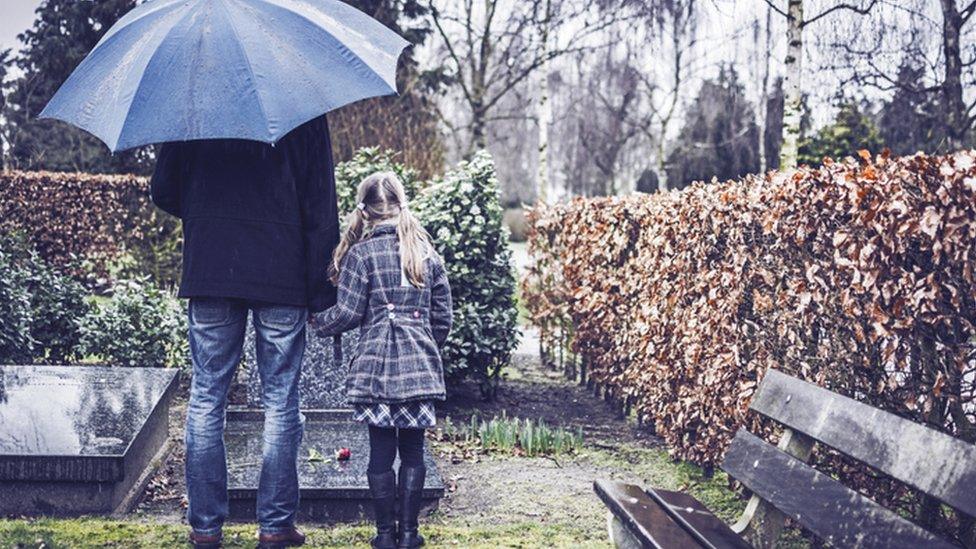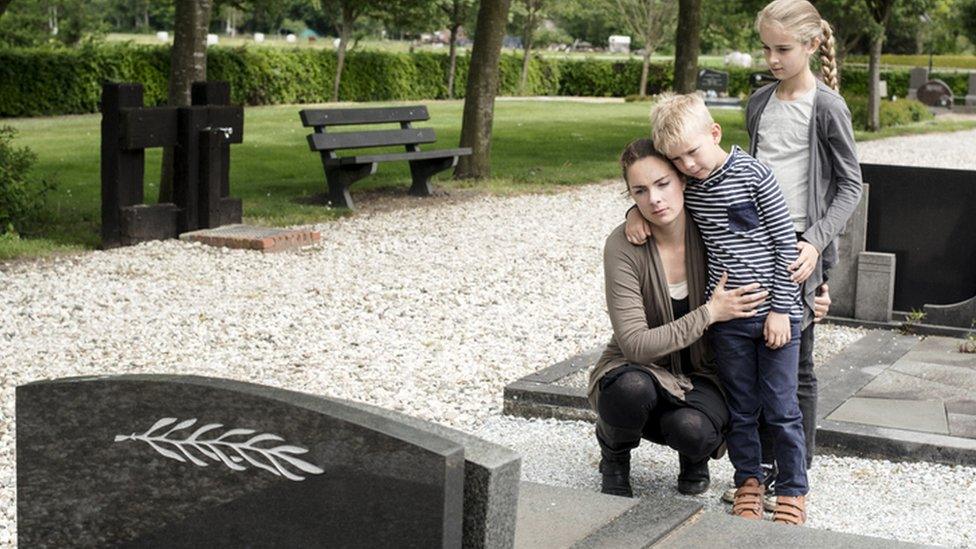Bereavement payments for co-habiting couples urged
- Published

A landmark legal case has found denying bereavement payments to co-habiting couples is against human rights law.
Payments worth up to £10,000 are made to individuals whose husband, wife or civil partner has died, if the couple were on child benefit.
The government is now being urged by the Child Poverty Action Group, which brought the case, to update the legislation to reflect the ruling.
The ruling recognises grieving children and parents need support, it said.
The current rules mean that bereavement support payments, if made for the maximum 18-month period, entitle a spouse or civil partner to £4,300.
This rises to the higher rate of £9,800, if a couple have children.
The Child Poverty Action Group, which brought the case, said this meant around 2,000 families were losing out.
The case was brought on behalf of two families where the mother had died, leaving the fathers caring for their young children.
'Support refused'
One of the fathers, who has three sons - now aged four, eight and 13, had been living with his partner for 14 years.
She died suddenly in October 2018, but had previously been working full-time and paying National Insurance contributions.
However, when the father made a claim for bereavement support, it was refused on the grounds that the couple had not been married.
The other father had been living with his partner for 10 years and together they had two daughters, now aged nine and seven.

The mother was diagnosed with breast cancer in December 2016, and died in March 2018.
The father made an application for bereavement support, which was also refused on the grounds that he and his partner were not married.
In both cases the couples were engaged and had intended to marry, but financial and health issues meant that such intentions were never realised.
'Breathing space'
The Supreme Court ruled in August 2018 that denying Widowed Parent's Allowance to unmarried mother-of-four Siobhan McLaughlin, from Northern Ireland, was incompatible with human rights law.
However, the government has to date taken no action to amend the relevant legislation, to bring it into compliance with human rights law
Carla Clarke, solicitor for the Child Poverty Action Group, said: "The two fathers in this case took legal action to protect not only their own grieving children, but the estimated 2,000 bereaved families who, each year, are excluded from bereavement support payments purely because the parents did not marry.
"The court's finding is clear and strong - it recognises that the needs of grieving children are no less for the fact that their parents did not marry, and confirms that restricting higher-rate bereavement payments to spouses is unlawful, and discriminates against children with unmarried parents."
Alison Penney, director of the Child Bereavement Network, said: "This money could provide a breathing space to help the family begin to adjust to life without a mum or dad, as well as paying for new expenses such as childcare or bereavement counselling.
"This ruling paves the way for all grieving children to be supported, whether their parents are married our not."
She urged Parliament to amend the relevant legislation, and to clarify the position for those parents who were previously deemed ineligible, as they were not married.